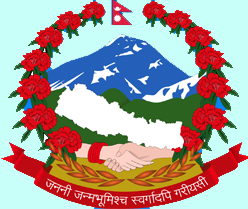Sixty years on, the Bakhanpur co-operative is active and so is the co-operative movement of the country. During that time, the movement has been through many vicissitudes, though.
Initially co-operatives were looked upon as a means of delivering official assistance, especially farm credit, to the people. Soon after the first elected government of the country took office in 1958, co-operatives were envisaged operating as democratic organisations and serving their membership in various ways. Promulgated in 1959, the country's first Co-operative Act was designed to foster co-operatives in line with the principles of Co-operation.
But in 1960 the popular government was unceremoniously removed from office by the King who then imposed the partyless Panchayat rule. This new idea of government was said to have been based on class co-ordination and the co-operative was to form the backbone of the Panchayat economy. Politicization of co-operatives was followed by officialization, of course . No wonder despite incessant efforts and occasional campaigns for expansion and consolidation, such as the Sajha (or the co-operative) Programme of 1976, the movement could not gain the desired momentum. Just as the political system was imposed against the will of the people, so, too, were co-operatives set up by involuntarily involving them.
The popular movement of 1990 reinstated multi-party democracy and the free market-like environment of the 1990s was congenial for co-operatives. To encourage co-operative work among the masses, a new Co-operative Act was made in 1992 by repealing the existing legislation. The new law recognized co-operatives as organisations to be formed by the people of their own free will and to be self-regulated according to the principle of member democratic control. Also of note is that the 2015 Constitution of Nepal has envisaged a distinct co-operative sector in the national economy. In addition, co-operative development is constitutionally a function to be shared between – and also to be discharged separately by – the three levels of government in the federal structure.
The deregulating effect has all along been more quantitative than qualitative, however. Thus the genuineness of many co-operatives has been called into question. Worse still, there have been cases of co-operatives being misused by unscrupulous directors.
Ensuring 'Co-operativeness' is therefore a priority. Part of the solution is to be found in co-operative-friendly – or rather co-operative member-friendly – regulation. Accordingly, the 2017 Co-operative Act provides for corrective regulation should the self-regulatory processes of the co-operative fail.


 Nepali
Nepali English
English